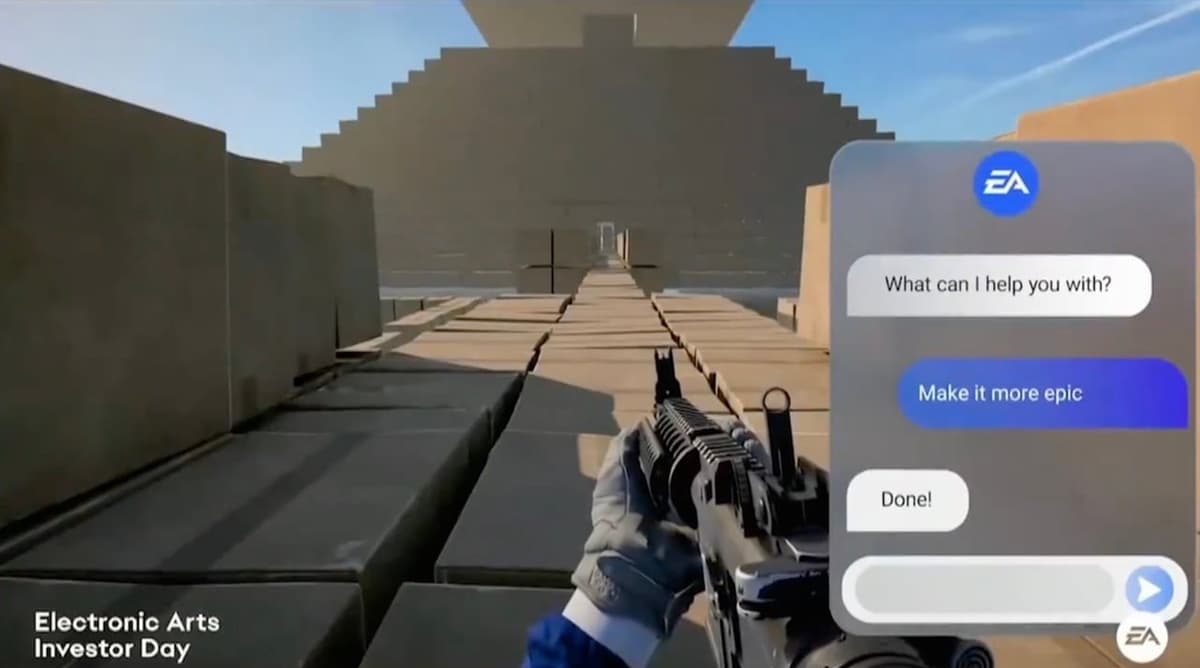
This caught my attention because it cuts through the usual “AI will save everything” pitch we keep hearing from publishers. According to a Business Insider report echoed by TweakTown, Electronic Arts’ internal AI push – including an in-house tool reportedly called ReefGPT – is delivering hallucinated output, bad code, and extra rework. If you’ve wondered why live-service patches feel sloppier, or why support responses read like bots talking to bots, this is the unglamorous backstory.
I’ve watched EA chase efficiency plays for years: annualized sports releases, live-service monetization, aggressive outsourcing. AI was always going to be the next lever. But if the tooling isn’t production-ready and leadership treats it like a headcount replacement instead of an assistive layer, players pay the price first – in bugs, delays, and bland design.
Per Business Insider’s investigation (amplified by TweakTown), EA rolled out internal AI tools to speed up coding, testing, and content ops. In practice, developers allegedly spent hours validating generated code, chasing down hallucinated dependencies, and fixing builds that used to be stable. That’s the opposite of “productivity.” I’ve seen similar pain at other studios: AI code can look confident while being subtly wrong, and those subtle errors are the most expensive to catch late in the pipeline.
There’s also the human side. Multiple reports describe teams demoralized by AI mandates tied to “efficiency” targets. If your performance review nudges you to use a tool that regularly breaks your branch, you don’t get innovation — you get risk aversion and burnout. Players feel that downstream as slower patches, fewer surprises, and a general vibe of maintenance mode.

Context matters. Industry chatter has pointed to intense financial pressure, with cost controls and automation placed front and center. That’s textbook “AI as a CFO strategy,” not a design-led one. When leadership treats AI as a way to ship the same games with fewer people, you get exactly what we’re seeing reported: standardization, brittle pipelines, and players drifting away.
Look at live-service bellwethers. Apex Legends remains a huge earner, but the community has consistently pushed back on pricing experiments and aggressive event design. If AI is feeding dynamic offers, churn prediction, or engagement “nudges” without the right ethical guardrails, it’s easy to cross from personalization into predation. Players notice, and they leave. We’ve seen similar backlash cycles across the industry whenever dynamic pricing or manipulative FOMO creeps in.
Meanwhile, EA Sports’ annual franchises (Madden, EA FC) are structurally safer — but they’re also where sloppy tooling shows fast. QA shortcuts ripple through physics, animation state logic, and online stack stability. Generative test scripts can help, but they need domain-specific training and human adjudication. Anyone who lived through Battlefield 2042’s launch knows how brutal networked edge cases can be if your test coverage isn’t rock solid.

Day to day, this is why your patch notes feel longer while fixes feel thinner. If internal AI is adding rework, patches ship late. If support is triaged by bots tuned on outdated knowledge bases, your ticket loops. If monetization algorithms are over-optimized, store pages feel naggier and less fair. None of that screams “we respect your time.”
I’m especially watching BioWare’s projects. Creativity-heavy RPGs like Dragon Age and Mass Effect suffer when you optimize for throughput. You can’t prompt-engineer narrative coherence, quest logic, and encounter pacing into greatness — you iterate with writers, quest designers, and playtesters. AI can help with grunt work (NPC barks, localization drafts, asset tagging), but make it the driver and you’ll get safe plots, samey encounters, and worlds that feel procedural rather than authored.
Matchmaking and server ops are the one area where AI consistently helps, but only if measured against player-centric metrics (fair matches, quick queues, low toxicity) rather than pure session length. If the KPI is “keep them online at all costs,” you distort the ecosystem. If it’s “good matches fast,” players stay happily — no coercion needed.

There’s a sane path here. Keep AI assistive: code suggestions gated by strict linting and tests; AI QA agents focused on regression hunting, not replacing human playtest; content tools for baseline generation followed by human editing. Invest in training. Publish internal quality metrics. Stop tying bonuses to “AI adoption” and tie them to shipped quality: crash rates, bug burn-down, sentiment improvement, and retention that isn’t juiced by pricing tricks.
Players can help steer this, too. Vote with your time and wallet: reward polish and fair economies, skip battle passes that lean on FOMO, and keep feedback specific. Communities bulldozed bad monetization before — they can do it again. Studios do listen when sentiment and spend align.
Reports suggest EA’s internal AI tools are causing more rework than relief, with bugs, delays, and morale hits leaking into the games we play. AI isn’t the enemy — careless deployment is. If EA treats AI as an assistive layer and measures success by quality, not headcount, players could finally see the upside.
Get access to exclusive strategies, hidden tips, and pro-level insights that we don't share publicly.
Ultimate Gaming Strategy Guide + Weekly Pro Tips